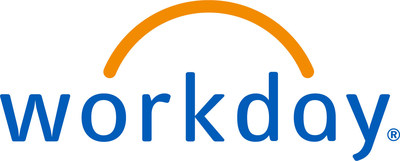Workday Global Survey Reveals AI Trust Gap in the Workplace
- None.
- None.
Leaders and Employees Have a Lack of Trust When it Comes to the Responsible Development and Deployment of AI
Key findings include:
- Only
62% of business leaders (C-suite or their direct reports) welcome AI. This number is even lower among employees, at52% . 23% of employees are not confident their organization puts employee interests above its own when implementing AI.70% of business leaders agree AI should be developed in a way that easily allows for human review and intervention.42% of employees believe their company does not have a clear understanding of which systems should be fully automated and which require human intervention.- 3 in 4 employees say their organization is not collaborating on AI regulation.
- 4 in 5 employees say their company has yet to share guidelines on responsible AI use.
"There's no denying that AI holds immense opportunities for business transformation. However, our research shows that leaders and employees lack confidence in, and understanding of, their organizations' intentions around AI deployment within the workplace," said Jim Stratton, chief technology officer, Workday. "To help close this trust gap, organizations must adopt a comprehensive approach to AI responsibility and governance, with a lens on policy advocacy to help strike the right balance between innovation and trust."
"Ethical standards in the use of AI and ML are vital for long-term success. As we introduce more and more AI technologies, we are focused on building trust with customers and employees," said Dan Cohen, chief information officer and director of operations at The Amenity Collective. "Our aspirational goal is to create a culture, at the very core of our brand, that adopts AI and empowers each person in our company to use it to do the right thing for our customers. I applaud Workday's commitment to understanding and addressing the sentiment of leaders and employees so we can work to close the AI trust gap."
Lack of Trust at all Levels of the Workforce
When it comes to organizations adopting and deploying AI responsibly, there is a lack of trust at all levels of the workforce, particularly from employees. Only
There is also uncertainty among employees and leaders that their organization will implement AI in the right way. Nearly one-quarter (
Human Intervention with AI
Leaders and employees want human involvement in AI processes, but are unclear on the best way to do so. The majority (
Earlier Workday-commissioned research on AI further validates concerns around companies' abilities to implement AI responsibly and effectively: nearly three-quarters (
Need for Smart AI Governance with Transparency
Asked to imagine a future where AI is a part of everyday life,
However, there is a lack of organization-wide visibility around AI regulation and guidelines. Three in four employees say their organization is not collaborating on AI regulation, and four in five say their company has yet to share guidelines on responsible AI use.
Workday has launched this research leading up to the World Economic Forum Annual Meeting, taking place in
For additional information:
- Download the report, Closing the AI Trust Gap.
- Check out the infographic, Closing the AI Trust Gap: Three Key Findings.
- Learn more about Workday's approach to responsible AI here.
About the Report
This data comes from the global study "Closing the AI Trust Gap," a survey commissioned by Workday and conducted by FT Longitude in November and December 2023. The survey encompassed 1,375 business leaders and 4,000 employees across 15 countries in three core regions:
About Workday
Workday is a leading provider of enterprise cloud applications for finance and human resources, helping customers adapt and thrive in a changing world. Workday applications for financial management, human resources, planning, spend management, and analytics are built with artificial intelligence and machine learning at the core to help organizations around the world embrace the future of work. Workday is used by more than 10,000 organizations around the world and across industries – from medium-sized businesses to more than
© 2023 Workday, Inc. All rights reserved. Workday and the Workday logo are registered trademarks of Workday, Inc. All other brand and product names are trademarks or registered trademarks of their respective holders.
Forward-Looking Statements
This press release contains forward-looking statements including, among other things, statements regarding Workday's plans, beliefs, and expectations. These forward-looking statements are based only on currently available information and Workday's current beliefs, expectations, and assumptions. Because forward-looking statements relate to the future, they are subject to inherent risks, uncertainties, assumptions, and changes in circumstances that are difficult to predict and many of which are outside of Workday's control. If the risks materialize, assumptions prove incorrect, or we experience unexpected changes in circumstances, actual results could differ materially from the results implied by these forward-looking statements, and therefore you should not rely on any forward-looking statements. Risks include, but are not limited to, risks described in Workday's filings with the Securities and Exchange Commission ("SEC"), including Workday's Form 10-Q for the fiscal quarter ended October 31, 2023, and other reports that we have filed and will file with the SEC from time to time, which could cause actual results to vary from expectations. Workday assumes no obligation to, and does not currently intend to, update any such forward-looking statements after the date of this release.
Any unreleased services, features, or functions referenced in this document, Workday's website, or other press releases or public statements that are not currently available are subject to change at Workday's discretion and may not be delivered as planned or at all. Customers who purchase Workday services should make their purchase decisions based upon services, features, and functions that are currently available.
![]() View original content to download multimedia:https://www.prnewswire.com/news-releases/workday-global-survey-reveals-ai-trust-gap-in-the-workplace-302030573.html
View original content to download multimedia:https://www.prnewswire.com/news-releases/workday-global-survey-reveals-ai-trust-gap-in-the-workplace-302030573.html
SOURCE Workday Inc.








